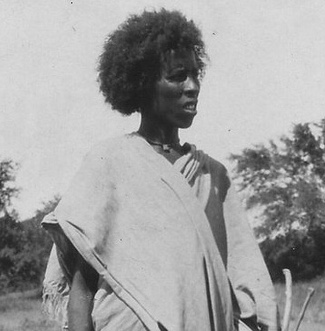Here the Article( it is quite long)
The Arabs Between fitna, fawda and the deep blue sea.
Jan 10th 2008 | CAIRO
From The Economist print edition
Why George Bush, touring the Middle East this week, is finding the Arabs in a gloomy mood
IT IS not easy to be an Arab these days. If you are old, the place where you live is likely to have changed so much that little seems friendly and familiar. If you are young, years of rote learning in dreary state schools did not prepare you well for this new world. In your own country you have few rights. Travel abroad and they take you for a terrorist. Even your leaders don't count for much in the wider world.
Some are big on money, others on bombast, but few are inspiring or visionary.
These are gross generalisations, of course. Huge differences persist among 300m-odd Arabic speakers and 22 countries of the Arab League. With oil prices touching record highs, some Arab economies are booming. The gulf between a Darfuri refugee and a Porsche-driving financier in Dubai is as great as between any two people on earth. Yet to travel through the Arab world right now is to experience a peculiar sameness of spirit. Particularly among people under 30, who make up the vast majority of Arabs, the mood is one of disgruntlement and doubt.
Factors that contribute to the gloom include the discombobulating impact of one of the world's fastest population growth rates, failing
public-education systems and the resilience of social traditions often illsuited to the urban lifestyle that is now the Arab norm. But it is politics above all that shapes this generation's discontent.
In the world at large, things have not looked good for the Arabs for a long time. The generation that emerged after the second world war came to believe in the inevitability of an Arab renaissance after centuries of domination by Ottoman Turks and European imperialists. Within this scheme of Arab progress, the problem of Palestine stuck out like a troublesome nail. Defeat in the 1967 war with Israel shattered many dreams. Yet even after Israel's victory Palestine remained a touchstone for Arabs
everywhere. Sooner or later, it was felt, justice would be done.
That confidence has taken a beating of late. Few Arabs expect the peace initiative George Bush launched in Annapolis last November to achieve anything. And the schism between Hamas and Fatah has shaken underlying assumptions. If the Palestinians cannot unite in their own cause, why should other Arabs help them? And which side to support? For fellow Arabs, as for alestinians themselves, the clash between a heart that cries “resist” and a head that counsels compromise has seldom been more perplexing.
As in Palestine, so in Iraq. In 2003 America's invasion produced all but universal Arab outrage. From afar, Iraqi “resistance” looked both natural and noble. But as Iraq has grown messier, the rights and wrongs have grown harder for Arabs to disentangle. There are few heroes in a cast that includes mass killers from al-Qaeda, brutal Shia militias, criminal gangs, Kurdish separatists and corrupt politicians as
well as the American occupiers.
Elsewhere in the region, it has become harder for thoughtful Arabs to blame the government-inspired slaughter in the Darfur region of Sudan or the stalemate between Lebanon's religious sects on a nefarious American foreign policy. Many Arabs still see Mr Bush's “war on terrorism” as a crusade against Islam. But many also note that al-Qaeda-style jihadism has killed more Muslims, from Morocco to Saudi
Arabia to the squalid Palestinian refugee camps of Lebanon, than “infidels”.
In past decades, Arabs looked to leaders for guidance. Egypt's Gamal Abdel Nasser and Anwar Sadat, Tunisia's modernising secularist, Habib Bourguiba, and Kings Hussein of Jordan, Hassan II of Morocco and Faisal of Saudi Arabia were all flawed men. Yet they, and even monsters such as Saddam Hussein and Hafez Assad, enjoyed some popular appeal as nation-builders. Most of today's leaders, by contrast, lack an inspirational project. Nor is any single country a natural leader of the Arabs. Egypt under the 26-year-long rule of Hosni Mubarak is no longer the champion of “Arabism”. Saudi Arabia has vast oil wealth
but a mixed record in diplomacy: its attempt last year to reconcile Fatah and Hamas unravelled with humiliating speed.
It may be a good thing that the personality-based leadership of the 1960s and 1970s has fallen out of fashion. Unfortunately, it has not been replaced by more institutionally-based systems of rule, let alone— for all the aid and speechifying of Western do-gooders—by democracy. Elections are more frequent and opposition parties and the press somewhat freer. But this is often a case of adopting the outward shape
of reform without the substance. Regimes point to the existence of parliaments, while hiding the tricks used to pack them with friends and exclude real opposition. They can trumpet privatisation programmes that reduce the role of the state, while obscuring the fact that many of the beneficiaries are regime cronies.
The marginally freer press makes for more colourful news-stands. But some opening was probably inescapable, due to the impact of hard-to-block new media, via satellites and the internet. Governments have simply switched from absolute control of information, for example through state television monopolies, to enacting laws that criminalise “spreading false information” or “disrespecting state institutions”. The supposedly liberalising, pro-Western governments of Morocco, Jordan, Tunisia and Egypt have all used such means to stifle dissent. Syria under Hafez Assad used to hurl dissidents into prison without much ado. His “modernising” son Bashar has them tried first. But they still end up in the slammer.
Stratagems such as these suck the vitality out of politics. Morocco is one of the bolder Arab reformers.
Yet despite rising prosperity, a relatively free press and multi-party elections, Moroccans have grown increasingly sceptical of a political process that remains tightly, if elegantly, circumscribed. As a result, voter turnout has steadily declined over the past two decades. In Egypt, fewer than one in ten voters bothered to turn out for recent polls.
Political scientists have long blamed oil wealth—and the rentier economy that so often goes along with it—for the survival of Arab authoritarianism. No taxation without representation, said America's
revolutionaries. Arab governments have inverted this refrain: by appropriating national energy resources and other rents, they neatly absolve themselves of the need to levy heavy taxes and therefore to win the consent of the governed.
'The devil you know'
A less obvious source of state power is a pervasive fear of what might happen in its absence. In many Arab countries loyalty to the state is weaker than loyalty to a sub-grouping based on kinship, ethnicity, religion or region. This is hardly a unique problem; many successful democracies still struggle with it. But Muslims have, in addition, yet to resolve the essential question of whether laws should emanate from the
people or from God.
Such points may seem abstract but they have practical consequences. In most Arab countries, regimes hold power by virtue of tradition or through military-backed movements that claim to represent the will of the masses. Where top-down authority collapses, as it did in post-Saddam Iraq or in the Palestinian territories after Arafat, it has been very hard for bottom-up politics to repair the damage.
In such circumstances, it is not surprising that people prefer the devil they know to the fitna (communal
strife) or fawda (chaos) that seem all too likely to replace it. This makes Arabs suspicious not just of Western advocates of democracy but also of parties such as the Muslim Brotherhood, which advocate change in the name of Islam. It is instructive to note that when such movements are confronted with bread-and-butter issues they tend to split between pragmatists and ideologues, leaving supporters
befuddled. Even Egypt's highly disciplined Muslim Brothers, for example, are riven by tensions between older hardliners and younger liberals.
The bleakness of political prospects is only one aspect of the current Arab malaise. The rigid social structures and strong family ties that form part of the cohesive strength of Arab societies have negative consequences too. Sex out of wedlock remains taboo, yet the cost of lavish weddings, hefty dowry payments and the bridal requirement of a furnished, paid-for home have pushed the average age of marriage in many Arab countries into the 30s. The resulting frustration is an underlying cause of troubles
from youth delinquency to religious extremism. Paternalistic social norms hold women back, even though their legal status is improving.
'Let them learn about the world'
Much fanfare has surrounded the release, over the past few years, of a series of UN-sponsored reports on human development painting a picture of Arab shortcomings that range from women's treatment to the feeble trickle of translation into Arabic of new knowledge. An oft-quoted statistic from the reports is that the amount of literature translated into Spanish in a single year exceeds the entire corpus of what has been translated into Arabic in 1,000 years.
If there is a common thread in many of these failings, it is poor education. Studies show a strong link between levels of schooling and attitudes to women's rights. Harder to prove, but equally valid by anecdotal evidence, is a link between breadth of reading and tolerance of diversity. Religious texts still out-sell every other form of literature in most Arab countries. This may promote punctilious practice of the faith, but hardly equips people for a bewildering world of ever-increasing choice.
Although the proportion of Arabs with university degrees is growing rapidly, quality lags far behind. An annual ranking of the world's top 500 universities, compiled by Shanghai's Jiao Tong University, includes only one Arab institution compared with seven universities in tiny Israel.
Some Arab governments are at last responding. Qatar and Saudi Arabia have hired well-known
consulting firms to revamp public-school systems designed in the 1950s. Even Syria has relaxed the
state monopoly of higher education. Private universities are flourishing everywhere, sometimes with generous state aid. Dubai's Sheikh Muhammad Maktoum has pledged $10 billion to create a foundation to advance knowledge. Saudi Arabia has committed some $3 billion to build what officials promise will be
a world-class postgraduate institute that will be beyond the supervision of the religiously conservative education ministry, and where men and women will be allowed to mingle.
Another cause for hope, just now, is the rapid growth of most Arab economies. For each of the past six years the Arab world has, by some estimates, grown faster by at least a percentage point than the world as a whole. Record oil prices have helped a lot. So has demography: birth-rates are falling after a period
of high growth, increasing the proportion of wage earners to dependants. This has boosted consumer industries, as have reforms to ease investment and trade. Give me five more years of 7% growth, one Egyptian minister is fond of saying, and many of our other problems will fade. Maybe.



